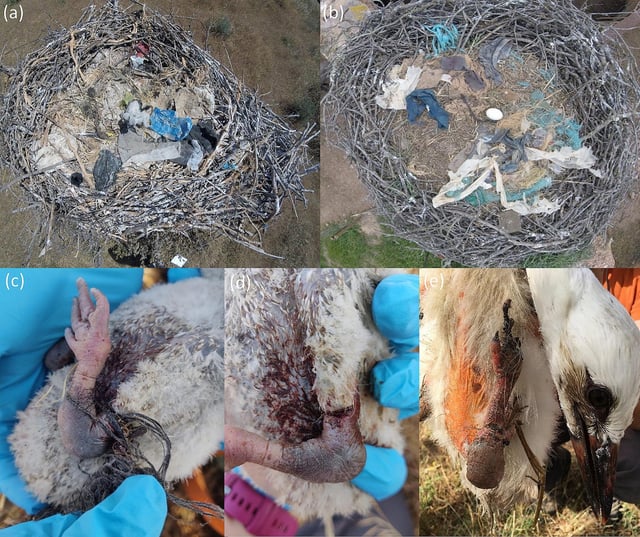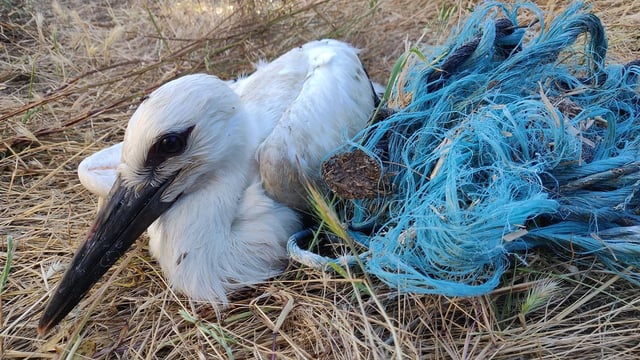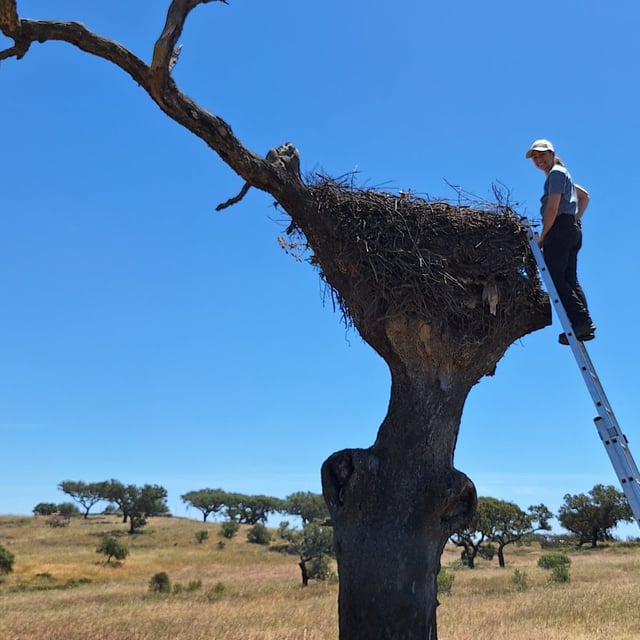Overview
- A paper published July 14 in Ecological Indicators shows about 90% of 568 white stork nests in southern Portugal contained plastic debris.
- Weekly inspections of 93 nests during the 2023 breeding season revealed 27% held chicks entangled in synthetic fibers.
- Overall, 12% of nestlings became ensnared by plastics—predominantly polypropylene baler twine—often resulting in fatal injuries.
- Entanglements caused strangulation, necrosis, amputations and infected wounds, with many chicks dying before fledging.
- Authors recommend simple interventions such as mowing beneath nests and replacing twine with biodegradable alternatives to reduce risks.


